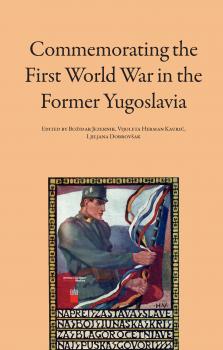Commemorating the First World War in the Former Yugoslavia
Ključne besede:
prva svetovna vojna, JugoslavijaKratka vsebina
The First World War, as the first industrial war in history, also proved to be an extremely important milestone in the social development of the Old Continent. The assertion of the nation-state principle as the most “natural” form of organisation of political and social life became the norm. The old empires (the Russian, the Ottoman, the Habsburg, and the German) disintegrated, and on their ruins new nation-states emerged, including the Kingdom of Serbs, Croats, and Slovenes. On the one hand, the establishment of a nation-state was celebrated as the realisation of the ultimate goal of all nationalist movements, and so in 1918 many rejoiced that with its creation a “centuries-old dream” had come true. However, the First World War, which made possible the establishment of the first nation-state in which the majority of South Slavs were united in one state for the first time in history, proved to be and the Construction of Yugoslav Identity too great an obstacle. The division and mistrust in the interwar period, coupled with a one-sided focus on one’s own right, proved to be such an obstacle that the leaders of the time who spearheaded the unification process were unable to overcome it. Instead of striving for common goals, they prioritised the assertion of particular attitudes and interests.
Poglavja
-
Memorial Heritage of the First World War and the Construction of Yugoslav Identity
-
Cleaning Up the Battlefield. The Serbian Army and its War Dead (1914–1918)
-
Financing Yugoslav First World War Memorials
-
The First World War Cemeteries and Monuments in Subotica (1914–2021)
-
The First World War Monuments and Memorial Heritage in Macedonia
-
Monuments and Commemorations of Fallen Soldiers from the First World War in Montenegro, 1918-1941
-
The Politics of Remembrance of the First World War and Monuments in Bosnia-Herzegovina
-
The Forgotten Heritage of the First World War in Croatia
-
Public Memorials and Monuments from the First World War Period in Zagreb: Lost Signs of the Great War
-
The Battle for Commemorating the First World War Centenary in Croatia
-
Slovenian Remembrance Landscape in a Centenial Perspective
-
Graves Were Tended and Monuments Were Erected to Soldiers after the First World War
-
Commemorating Fallen Slovenian Soldiers in Austro-Hungarian Uniforms and the Yugoslav Idea
Downloads

Izdano
Zbirka
Kategorije
Licenca

To delo je licencirano pod Creative Commons Priznanje avtorstva-Deljenje pod enakimi pogoji 4.0 mednarodno licenco.

